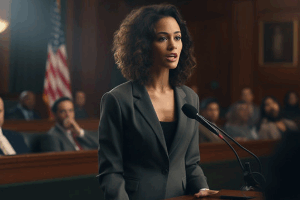 The left has been proffering a series of baseless accusations against the Trump White House since day one. Their goal? To convince Americans that President Trump is a Soviet-era KGB agent who has invaded American society.
The left has been proffering a series of baseless accusations against the Trump White House since day one. Their goal? To convince Americans that President Trump is a Soviet-era KGB agent who has invaded American society.
Based on what evidence, you ask? That’s the very simple question CNN’s Wolf Blitzer asked Democratic Senator Dianne Feinstein not once, but twice, pressing her to provide evidence that the Trump campaign colluded with the Russians. The line of questioning forced her to finally admit that she had none. “There are all kinds of rumors around, there are newspaper stories, but that’s not necessarily evidence,” Feinstein replied.
Rumors? Newspaper stories mostly based on anonymous sourcing? This is the scant evidence a sitting United States Senator offers?
Unsettled with one unsubstantiated accusation, the Democrats decided to reach for two in alleging that President Trump obstructed justice in the firing of FBI Director Jim Comey and its aftermath.
This time it was CNN’s Chris Cuomo pressing Democratic Senator Richard Blumenthal for direct evidence of obstruction of justice. Blumenthal pointed to a New York Times story that alleged Trump had asked former FBI Director Jim Comey whether fired National Security Adviser Michael Flynn really had to be investigated, saying “[h]e’s a good guy. I hope you can let this go.” The story — as so many are these days — was based on an anonymous source, who called the Times and read what was supposedly one of Comey’s memos.
The mention of the New York Times story as evidence prompted Cuomo to reply, “You haven’t even seen the memo. You haven’t heard from Jim Comey. I’m not saying that the reporting is wrong, but it’s just reporting – way too premature to even call it ‘evidence’ yet.” To which Blumenthal had to concede that Cuomo had raised a “very fair point.”
But even if Democrats are right on the facts, they are wrong on the law. If the memo is real, and it appears that it is as confirmed by multiple news outlets, that is not evidence of obstruction of justice.

Free Attorney Time Tracking Template For Smarter Billing
Tired of messy time logs? This free attorney time tracking template helps you bill with confidence and accuracy. Learn more in the full article.
There are several U.S. statutes applicable to obstruction of justice cases. The following two are the ones tangentially related to the Trump-Comey situation.
- 18 U.S.C. § 1505 – Under this statute, a prosecutor must prove three elements: the defendant (1) corruptly (2) endeavored to influence, obstruct, or impede the due and proper administration of the law (3) under which any pending proceeding is being had.
- 18 U.S.C. § 1510 – A prosecutor must likewise prove three separate but related elements: the defendant (1) willfully (2) by means of bribery (3) obstruct[ed], delay[ed], or prevent[ed] the communication of information relating to a violation of any criminal statute… to a criminal investigator.
Both statutes require a showing of specific intent, which is highly problematic. “I hope you can let this go” and “Mike Flynn’s a good guy” are conversational statements, not threatening demands. The first element of each statute would be nearly impossible to prove based on what we know.
Likewise, the “by means of bribery” element of § 1510 simply did not occur. In a New York Times Op-Ed entitled Trump’s Statements Are Not an Obstruction of Justice, Professor Elizabeth Price Foley points to U.S. v. Sun-Diamond Growers of California, which says, “for bribery there must be a quid pro quo – a specific intent to give or receive something of value in exchange for an official act.”
“There is no evidence of a quid pro quo,” she plainly states. She analogizes Trump’s request to Obama’s public statements about Clinton. During a criminal investigation into Clinton’s mishandling of classified information, Obama said, “I don’t think it posed a national security problem. This is not a situation in which America’s national security was endangered.” The comments “rankled” some in the FBI, according to the New York Times. But the accusations of obstruction of justice were nowhere to be found.
With Trump, however, the double standards are profuse, with allegations of obstruction surfacing based on no sound legal reasoning or factual basis.
When the hosts of MSNBC’s Morning Joe asked George Washington University Law Professor Jonathan Turley whether Trump obstructed justice, he candidly said, “This isn’t going to be popular, but I don’t think so.” “Encouraging leniency or advocating for an associate is improper but not necessarily seeking an unlawful benefit for him,” Professor Turley wrote in The Hill.
In the immediate wake of Comey’s firing, though before allegations of the Comey memo, Professor Emeritus Alan Dershowitz – called the obstruction charges “a dangerous argument… put forward by some Democratic ideologues.”
Republican Congressman Trey Gowdy asked former CIA Director John Brennan, “When you learned of Russian efforts, did you have evidence of a connection between the Trump campaign and Russian state actors?” Brennan replied, “I don’t do evidence,” prompting Gowdy to retort, “I appreciate that you don’t do evidence… I do.”
We should all get back to “doing evidence” — on both sides of the aisle.
 Kayleigh McEnany is a CNN political commentator. She is a graduate of Harvard Law School and Georgetown University’s School of Foreign Service, and she also studied politics at Oxford University. In addition to writing a column for Above the Law, she is a contributor for The Hill. She can be found on Twitter at @KayleighMcEnany.
Kayleigh McEnany is a CNN political commentator. She is a graduate of Harvard Law School and Georgetown University’s School of Foreign Service, and she also studied politics at Oxford University. In addition to writing a column for Above the Law, she is a contributor for The Hill. She can be found on Twitter at @KayleighMcEnany.
